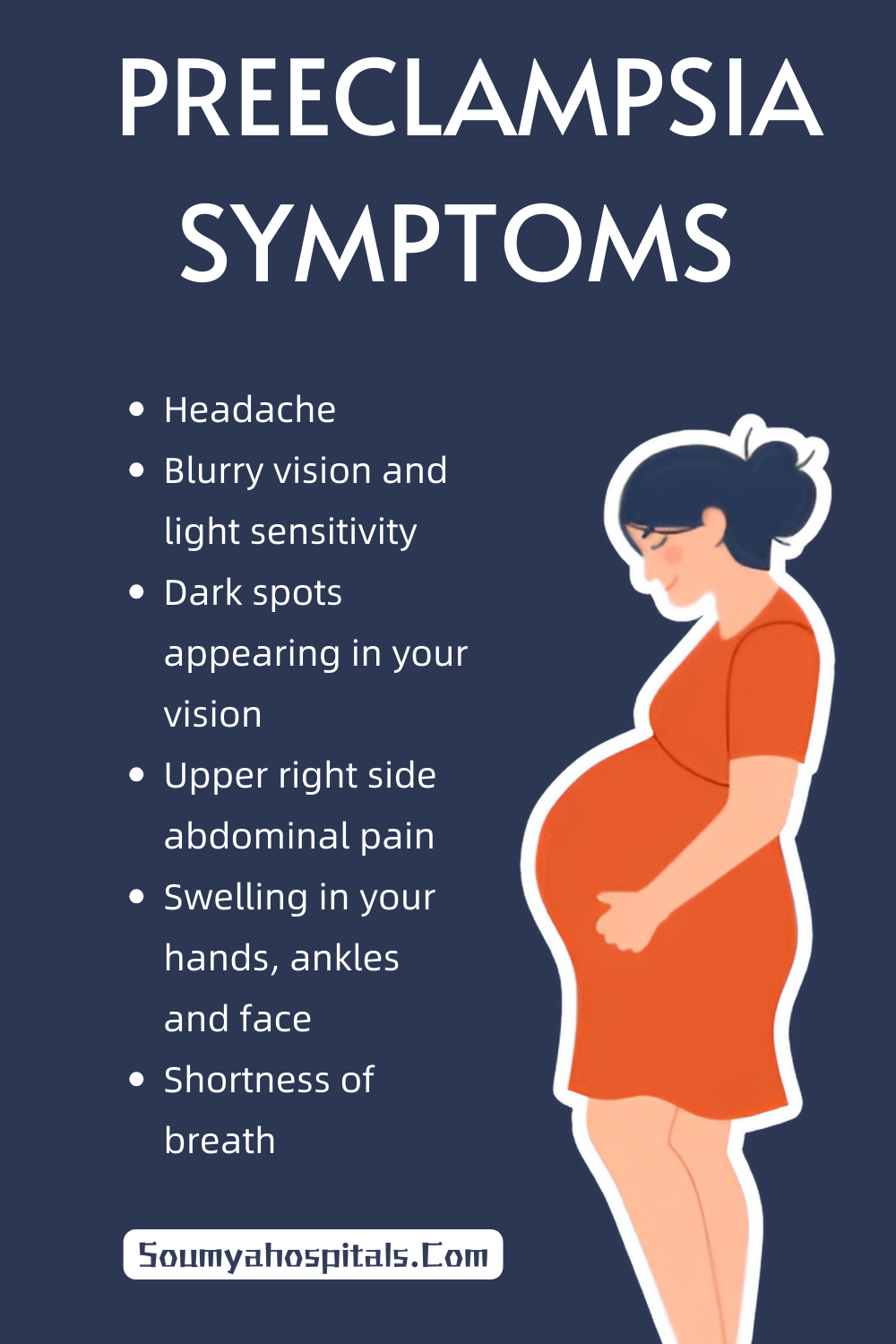Important Tests during pregnancy help check the baby's growth and health, as well as the mother's well-being.
Preeclampsia is a condition that causes a sudden rise in blood pressure during pregnancy. It can also lead to clotting issues that may affect organs like the liver and kidneys. It is the most common complication that occurs in pregnancy. It generally develops during the third trimester and affects about 1 in 25 people.
Prenatal appointments and taking recommended screening tests are important components of managing health, preeclampsia and potential conditions such as eclampsia. A urine test is conducted to diagnose preeclampsia. Get to know more about the prenatal test here.
- What is Preeclampsia?
- Preeclampsia Symptoms and Causes
- Diagnosis of Preeclampsia
- Complications of Preeclampsia
- How to test for preeclampsia at home?
- Which 2 tests confirm the diagnosis of preeclampsia?
- Does urine look different with preeclampsia?
What is Preeclampsia?
Preeclampsia is a severe blood pressure condition that develops during pregnancy. People with preeclampsia often have high BP (hypertension) and high levels of protein in their urine (proteinuria). It usually develops after the 20th week of pregnancy.
Also Check: How Much Weight Should You Gain During Pregnancy?
Preeclampsia can cause kidney, and liver damage, brain injury and other serious side effects. It's dangerous for both pregnant women and the developing fetus. Because of their risks, the healthcare provider will need to monitor your pregnancy closely and recommend treatment immediately.
Preeclampsia is a common condition that affects pregnant women between 5% and 8% of all births in the US. It's also the cause of about 15% of premature deliveries in the United States.
Preeclampsia Symptoms and Causes
Most people with preeclampsia don't show any symptoms until a visit to their healthcare provider. For those, some of the initial sings are high blood pressure, protein in your pee and retaining water. Other sings of preeclampsia are as follows:
- Headache
- Blurry vision and light sensitivity
- Dark spots appearing in your vision
- Upper right side abdominal pain
- Swelling in your hands, ankles and face
- Shortness of breath

A pregnant lady often doesn't know they have preeclampsia until their healthcare provider checks their BP and urine at a prenatal appointment. It's important to share all your pregnancy signs with your healthcare provider.
Severe preeclampsia symptoms can include:
- Hypertensive emergency (blood pressure is 160/110 mmHg or higher)
- Decrease in kidney or liver function
- Fluid in your lungs
- Lower blood platelet levels
- Not producing or producing very little pee
Diagnosis of Preeclampsia
Preeclampsia is easily diagnosed during the routine checkups you have while you are pregnant. During these prenatal appointments, your blood pressure is regularly checked for signs of high blood pressure and a urine sample is tested to see if it contains protein.
See your midwife or GP for advice if you notice any preeclampsia signs between your antenatal appointment.
BP is a measure of the force of the blood on artery walls as it flows through them. It is recorded as 2 figures:
Systolic Pressure: The pressure when the heart beats and squeezes blood out
Diastolic Pressure: The pressure when the heart rests between beats
Your GP will use a device with an inflatable cuff and a scale as a pressure gauge to measure your blood pressure. The systolic reading is taken first, followed by the diastolic reading.
High blood pressure during pregnancy is defined as a systolic reading of 140mmHg or more or a diastolic reading of 90mmHg or more.

A urine sample is usually collected at every antenatal appointment. This can easily be tested for protein using a dipstick. A dipstick is a strip of paper that's been treated with chemicals so it reacts to protein, usually by changing color.
If the dipstick tests positive for protein, your GP may ask for another urine sample to send to a laboratory for further tests.
In between 20 weeks and 36 weeks of pregnancy, doctors suggest blood tests for preeclampsia. It measures levels of a protein called placental growth factor (PIGF). If your PIGF levels are high, likely, you don't have preeclampsia.
If your PIGF levels are low, it could be a preeclampsia sign, but further tests are needed to confirm the diagnosis.
If you are diagnosed with preeclampsia, you should be referred to a specialist in the hospital for further tests and more frequent monitoring.
Based on the severity of your condition, you may be able to go home after initial assessment and have frequent outpatient appointments.
Complications of Preeclampsia
If not treated, preeclampsia can be potentially fatal to both you and the baby. It can cause severe kidney and liver damage and interfere with your brain function. Some of the most serious complications for pregnant women are as follows:
- Seizures
- Eclampsia
- Coma
- Stroke
Preeclampsia can cause HELLP syndrome. This happens when preeclampsia damages your liver and interferes with blood clotting. The most common complications to the fetus are:
- Premature birth
- Low birth weight
- Placental abruption

People who particularly develop preeclampsia in early pregnancy are at a greater risk for the following conditions later in life:
- Kidney disease
- Heart disease
- Stroke
- Developing preeclampsia in future pregnancies
FAQs on Urine Tests for Preeclampsia
1. How to test for preeclampsia at home?
When you are at home, then your healthcare provider may ask you to monitor the following things:
- Measure your blood pressure
- Check your urine for protein
- Monitor how much fluid you drink
- Monitor how often your baby moves and kicks
2. Which 2 tests confirm the diagnosis of preeclampsia?
Blood tests and urine tests confirm the diagnosis of preeclampsia.
3. Does urine look different with preeclampsia?
Yes, urine looks different with preeclampsia. The symptoms of preeclampsia include high blood pressure and protein in the urine which may cause dark-colored urine, less urine, or burning during urination.
Final Thought
Hoping that the data provided here about tests for preeclampsia are useful for you. Stay connected with us for more related screening tests during pregnancy like blood tests, urine tests, ultrasounds, etc along with some related articles ie., Urinary Tract Infection In Pregnancy.
